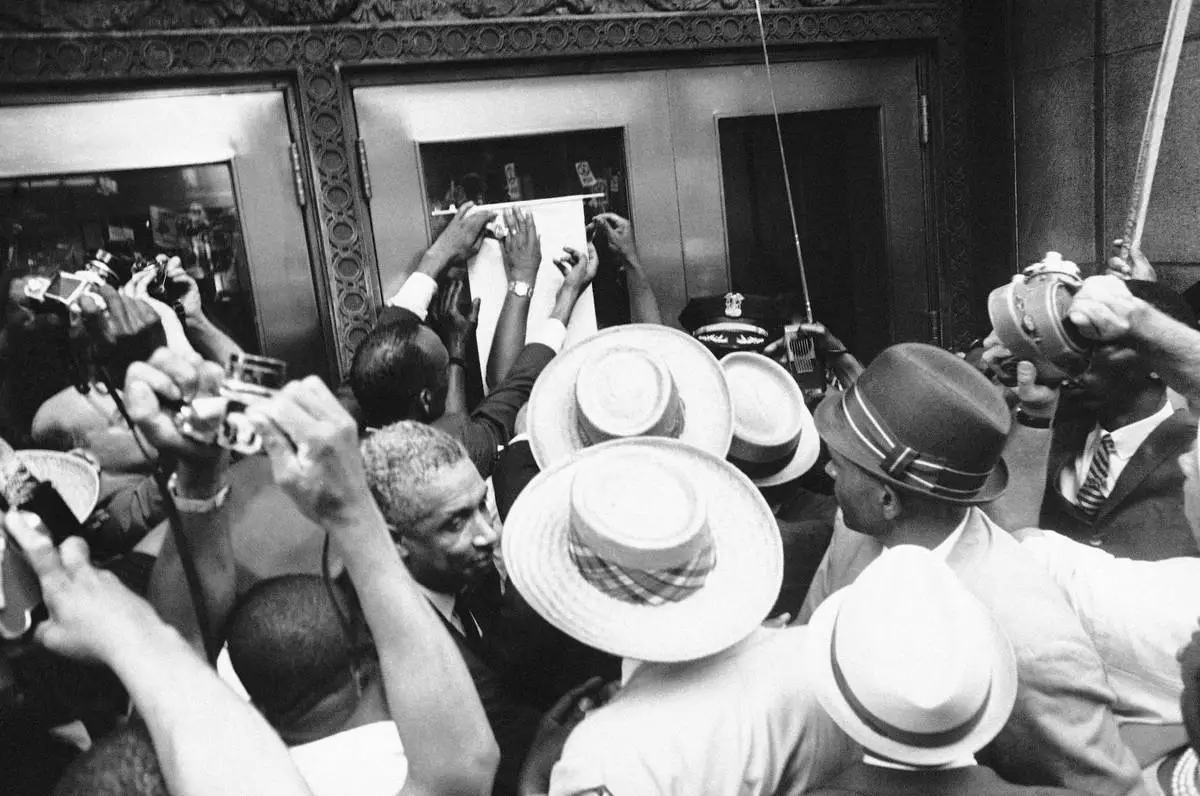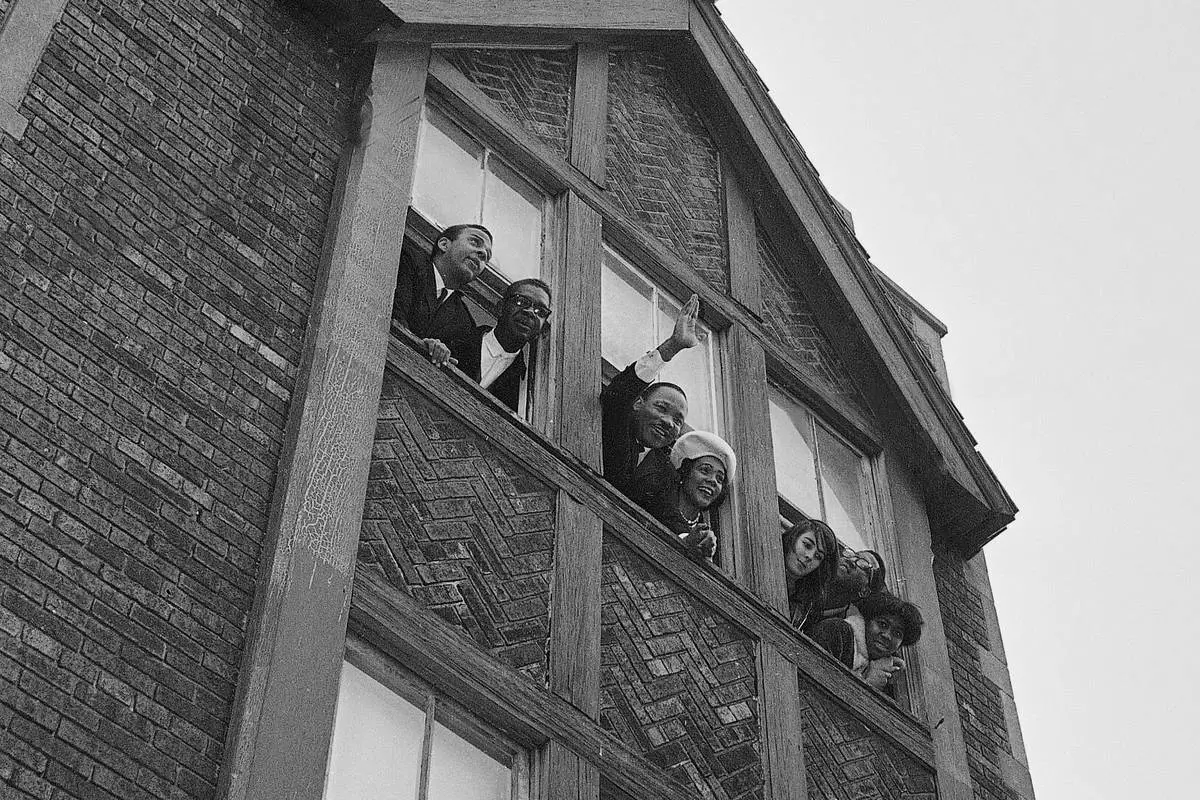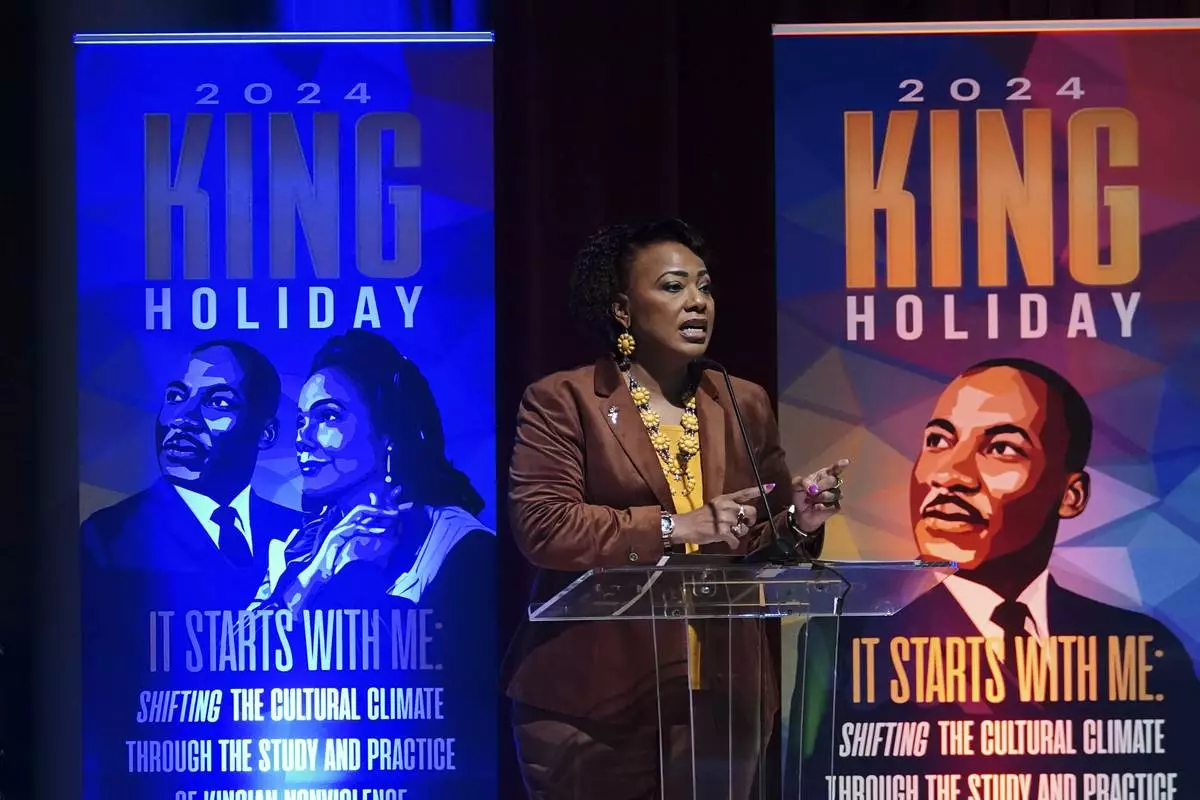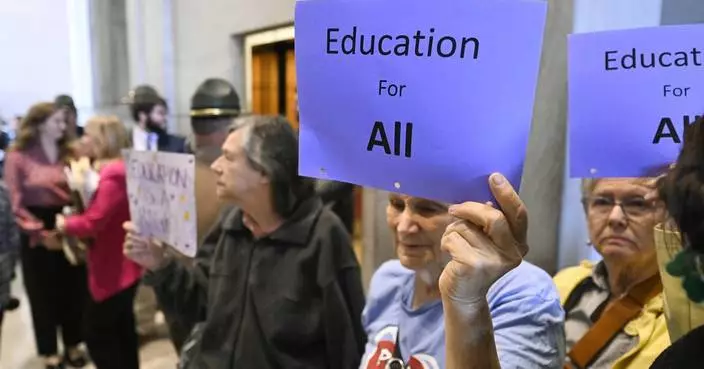BUFFALO, N.Y. (AP) — Jack Quinn and Alex Tuch scored shootout goals, and the Buffalo Sabres rallied from a pair of one-goal deficits in a 3-2 win over the playoff-bound Tampa Bay Lightning on Saturday night.
Despite the loss, the Lightning clinched their eighth straight playoff berth following the New York Rangers' 4-0 loss to New Jersey earlier in the day.
Tage Thompson and Jason Zucker scored for Buffalo, which has won six of seven and five straight at home. James Reimer stopped 22 shots through overtime and both shootout attempts to win his career-best matching sixth straight start.
Brayden Point and rookie Gage Goncalves scored for the Lightning and Jonas Johansson stopped 36 shots, and one of three shootout attempts.
Sitting second in the Atlantic Division, the Lightning moved two points ahead of third-place Florida, but fell four back of the division-leading Toronto Maple Leafs.
Lightning: Started slowly in failing to register their first shot on net until 14:12 in, and were outshot 9-2 in the first period. Ended slowly, combining for nine shots over the final 25 minutes.
Sabres: Thompson’s goal was his 40th, making him Buffalo’s first player with multiple 40-goal seasons since Thomas Vanek in 2006-07 and 2008-09, and ninth overall. Rick Martin tops the list with five 40-goal seasons.
Zucker tied the game at 2 with a power-play goal 5:07 into the third. Rasmus Dahlin’s initial shot was blocked and the puck dribbled to Zucker, who swept it in under Johansson’s pad.
Tampa Bay dropped to 32-8-5 when scoring first and 35-1-2 when leading after two periods.
The Lightning complete a four-game road swing at the New York Rangers on Monday night, while Buffalo hosts Boston on Sunday night.
AP NHL: https://apnews.com/hub/nhl

Buffalo Sabres right wing Alex Tuch (89) celebrates with goaltender James Reimer (47) and left wing Jason Zucker (17) after an NHL hockey game against the Washington Capitals, Sunday, March 30, 2025, in Washington. (AP Photo/Nick Wass)

Buffalo Sabres right wing Alex Tuch celebrates after his goal during the third period of an NHL hockey game against the Washington Capitals, Sunday, March 30, 2025, in Washington. (AP Photo/Nick Wass)
Bernice King warns decades of work to reduce inequities in housing is at risk, as the Trump administration cuts funding for projects and tries to reduce funding for nonprofits that handle housing discrimination complaints.
“I shudder to think what’s going to happen — there’s still a lot of residential segregation," King, CEO of The King Center and the youngest daughter of civil rights leaders The Rev. Martin Luther King Jr. and Coretta Scott King, told The Associated Press. "It’s better than it was during my father’s lifetime. But going forward, we may end up right back where we were in the ‘50s and in the ’60s. People will feel very emboldened to discriminate because they know there’s nothing there to to stop it."
In February, the U.S. Department of Housing and Urban Development canceled millions of dollars in grants to nonprofits that handle housing discrimination complaints. A judge temporarily froze the terminations, which HUD said targeted funding awards that included diversity, equity and inclusion, or DEI, language.
The department will uphold the Fair Housing Act and combat discrimination in housing, a HUD official said, adding that no staffing changes specific to the department have been announced.
King said the attacks on what the administration calls DEI look familiar.
“To me, these are those same old historic, divide-and-conquer tactics to try to keep people fighting with each other and keep people separated and keep a certain hierarchy existing in a society,” she said.
Whenever she can, King said she highlights her father's legacy pressing for economic equality, including speaking Thursday at the Northwest African American Museum in Seattle, near where Habitat for Humanity of Seattle-King & Kittitas Counties is building a new condominium named after him.
The 58-unit apartment block is located on Martin Luther King Jr. Way in King County, which is also named for him. Construction on the site has started and units will eventually be sold to buyers at affordable prices.
Seattle Habitat CEO Brett D’Antonio, said naming the building after King offered a chance to talk about racial equity in housing, part of Habitat for Humanity's efforts to raise awareness about fair housing, including its fundraising campaign Home is the Key, in April in remembrance of the Fair Housing Act's passage.
“There was just no better opportunity to name the building in honor of Dr. King as we look to the work ahead of us in tackling affordable housing needs across the country, but also here in Seattle,” he said.
Bernice King remembers when her father moved their family in 1966 to a third-floor walk-up without heat in Chicago. Martin Luther King Jr. came to Chicago to try to break through discrimination in housing, which left Black residents paying more in rent for worse conditions than white tenants.
Martin Luther King Jr. campaigned in Chicago, speaking to crowds of tens of thousands around the area and leading a march to City Hall to tape their demands on the front door. A week after he was assassinated in 1968, the Fair Housing Act was signed into law, which prohibited discrimination in housing based on race and other characteristics and created mechanisms to resolve complaints.
She said the dream of fair and equitable housing that the law's passage signaled has still not be realized.
“To allow its provisions to be weakened is to betray the commitment and the sacrifices made to realize it,” she said, speaking in Seattle.
Large discrepancies in homeownership between Black, Hispanic and white Americans persist today, though that is just one measure of inequity in housing access. The National Fair Housing Alliance found housing discrimination complaints reached a record 34,000 in 2023, with most involving rentals and over half having to do with discrimination based on disability.
Diane Levy, who researches housing at the Urban Institute, said she was concerned about who will take future fair housing complaints if funding to nonprofits that handle those complaints is significantly diminished.
“If you experience discrimination, if it’s blatant, that takes a toll," she said, adding even unseen discrimination limits where you can live and whether to rent or buy home, which, in turn, limits where you can work or go to school.
Levy also noted the administration ended federal protections against housing discrimination based on sexual orientation and gender identity.
Bernice King said this moment calls for creativity and perseverance.
“People feel like it’s okay to discriminate — okay to suppress, oppress and deny,” she said. “It just means those of us who are on the side of standing up for what is right and fighting for freedom, justice and equality, having even more work to do.”
Associated Press coverage of philanthropy and nonprofits receives support through the AP’s collaboration with The Conversation US, with funding from Lilly Endowment Inc. The AP is solely responsible for this content. For all of AP’s philanthropy coverage, visit https://apnews.com/hub/philanthropy.

FILE - Hands of civil rights leaders Al Raby, left, and Dr. Martin Luther King, post a scroll on door of Chicago's City Hall, July 10, 1966. (AP Photo/Larry Stoddard, File)

FILE - Dr. Martin Luther King, Jr. and his wife Coretta Scott King wave to crowd in street from center window of a third-floor walk-up apartment he rented on Chicago's West Side, Jan. 26, 1966. (AP Photo/Edward Kitch, File)

FILE - Bernice King daughter of Martin Luther King Jr., speaks during a news conference at the King Jr Center Thursday, Jan. 4, 2024, in Atlanta. (AP Photo/John Bazemore, File)

























































